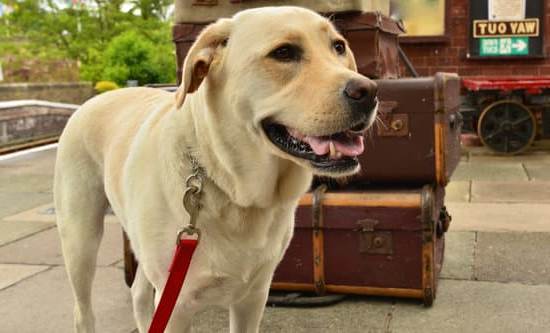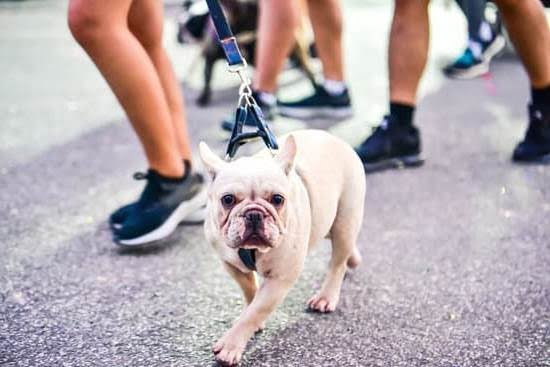Are you wondering how to train a dog to guard chickens? Many people are turning to guardian dogs as a natural and effective way of protecting their flock. Guardian dogs are known for their innate protective instincts and can be trained to live harmoniously with chickens while keeping them safe from predators. In this article, we will explore the key steps and considerations in training a dog to become an effective guardian for your beloved chickens.
To successfully train a dog to guard chickens, it is crucial to first understand the role that a guardian dog plays in protecting the flock. By choosing the right breed and establishing trust and obedience between the dog and the chickens, you can create a mutually beneficial relationship that ensures the safety of your feathered friends.
This article will guide you through each step of the training process, from introducing the dog to the chickens in a controlled environment to training them to recognize and deter potential threats.
Training a dog to be an effective guardian for your chickens requires patience, consistency, and positive reinforcement. It is essential to manage the dog-chicken relationship carefully to prevent accidents or aggression while troubleshooting common issues that may arise during training.
Additionally, ongoing supervision and training are vital for maintaining a successful chicken-guarding dog. Whether you are new to raising chickens or looking for ways to enhance their protection, this article will provide valuable insights into training a reliable guardian dog for your flock.
Choosing the Right Breed for Guarding Chickens
When it comes to training a dog to guard chickens, choosing the right breed is crucial for the success of this endeavor. Not all dogs are suited for this task, so it’s important to consider the characteristics and temperament of the specific breed.
Characteristics to Look For
The ideal guardian dog for chickens should have a strong protective instinct, be territorial, and have a calm demeanor. Breeds that are known for their guarding abilities and loyalty, such as Anatolian Shepherds, Great Pyrenees, and Maremmas, are good candidates for guarding chickens. These breeds have been traditionally used as livestock guardians and have the natural instincts needed for protecting chickens from predators.
Temperament and Training Needs
It’s important to consider the temperament of the specific dog as well. Even within a breed known for guarding traits, individual dogs may vary in their suitability for guarding chickens. Additionally, the training needs of different breeds can vary, so it’s important to choose a breed that fits your lifestyle and experience level as a dog owner.
Before selecting a guardian dog for your chickens, thoroughly research the characteristics and needs of different breeds to ensure that you choose one that is best suited for this specific task. Remember that proper selection of the breed is a critical first step in successfully training a dog to guard chickens.
Establishing Trust and Obedience Between the Dog and the Chickens
Building Trust Through Bonding
One of the most important aspects of training a dog to guard chickens is building trust between the dog and the chickens. This begins with allowing them to spend time together in a controlled environment, such as a fenced area or on leashes.
It’s essential for the dog to see the chickens as part of its pack and not as prey. Spend time with both the dog and the chickens together, so they become accustomed to each other’s presence.
Teaching Obedience Commands
Before introducing the dog to the chickens, it’s crucial to establish basic obedience training. The dog must understand and respond to commands such as “sit”, “stay”, and “leave it” reliably. This will help in controlling the dog’s behavior around the chickens, especially when it comes to preventing any aggression towards them. Consistent and positive reinforcement-based training will help ingrain these commands into the dog’s behavior.
Supervised Interactions
As you begin allowing closer interactions between your dog and chickens, make sure they are always supervised. This will allow you to intervene if there are any signs of aggression or inappropriate behavior from either party. Set clear boundaries for both the dog and chickens during these interactions, ensuring that they understand their respective roles within this new dynamic. Gradually increase their time spent together, always providing guidance and correction when necessary.
By establishing trust and obedience between your dog and chickens from the beginning, you can create a strong foundation for successful chicken guarding training in the future. Remember that patience, consistency, and positive reinforcement are key elements in this process.
Introducing the Dog to the Chickens in a Controlled Environment
Introducing a dog to chickens in a controlled environment is a crucial step in the training process. This step ensures that both the dog and the chickens are safe and comfortable during their initial interactions. It also sets the foundation for building trust and positive associations between the dog and the chickens.
When introducing the dog to the chickens, it’s important to keep the environment calm and controlled. Start by leash-training the dog and bringing them into the chicken coop or pen. Allow the dog to observe the chickens from a distance while remaining calm and in control. Gradually, allow the dog to approach closer to the chickens under your supervision.
It’s normal for dogs to be curious or even excited about meeting chickens for the first time. However, it’s important to monitor their behavior closely and intervene if necessary. If the dog shows signs of aggression or excessive excitement, separate them from the chickens and provide redirection or guidance. Over time, as trust and obedience between the dog and chickens are established, you can progress to closer interactions between them with caution and patience.
Training the Dog to Recognize and Deter Potential Threats to the Chickens
Once you have established trust and obedience between your dog and the chickens, it’s time to start training the dog to recognize and deter potential threats to the chickens. This is a crucial part of their role as guardian dogs, as they need to be able to identify dangers and take action to protect the flock.
One effective way to train your dog to recognize threats is through simulated scenarios. You can use a dummy predator, such as a coyote or fox cutout, and place it near the chicken coop. When your dog notices the dummy predator, you can give a command for them to bark or growl, signaling that they have identified a potential threat. Rewarding them with treats or praise for this behavior will reinforce their understanding of what is considered a threat.
It’s also important to expose your guardian dog to different sounds and smells that may indicate danger, such as unfamiliar noises or scents in the vicinity of the chicken coop. This will help them develop an instinctual awareness of potential threats even when you are not present. Consistency in training is key, so regular practice sessions will help solidify their recognition of these cues.
Lastly, it’s crucial to reinforce positive behavior with consistency and ongoing training. Regular refresher courses can help maintain your dog’s ability to recognize and deter potential threats effectively.
| Training Techniques | Importance |
|---|---|
| Simulated scenarios with dummy predators | Reinforces recognition of threats |
| Exposure to different sounds and smells | Develops instinctual awareness |
| Consistent positive reinforcement | Maintains recognition ability |
Reinforcing the Training With Positive Reinforcement and Consistency
Training a dog to guard chickens requires consistent reinforcement of the desired behavior and positive reinforcement to strengthen the bond between the dog and the chickens. Here are some tips for reinforcing training with positive reinforcement and consistency:
- Use treats and praise: When your dog exhibits the desired behavior, such as staying alert and attentive to the chickens, reward them with treats and verbal praise. This will motivate the dog to continue behaving appropriately around the chickens.
- Consistent training schedule: Establish a consistent daily training schedule for your dog. This will help reinforce their understanding of their role in guarding the chickens and create a sense of routine for both the dog and the chickens.
- Patience is key: Training a dog to guard chickens takes time, patience, and repetition. Be patient with your dog and consistently work on the training exercises to reinforce their understanding of how to behave around the chickens.
In addition to positive reinforcement, using consistent commands and cues will also help reinforce the training. It’s important that everyone involved in caring for the chickens uses the same commands when interacting with the dog, ensuring that there is no confusion for the animal.
Lastly, creating a positive environment for both the dog and the chickens will help reinforce good behavior. Providing a comfortable living space for both animals, including shelter from extreme weather, clean water, and appropriate food, will contribute to their well-being and overall success in guarding the flock. Remember that a happy and well-cared-for animal is more likely to perform its duties effectively.
Managing the Dog-Chicken Relationship to Prevent Accidents or Aggression
When training a dog to guard chickens, it is crucial to manage the relationship between the two to prevent any potential accidents or aggression. Dogs have natural instincts that can pose a threat to chickens, and it is important to take steps to ensure their safety at all times.
To manage the dog-chicken relationship effectively, consider the following:
- Supervision: Always supervise the interactions between the dog and the chickens, especially in the early stages of training. This will allow you to intervene if necessary and prevent any harmful behavior.
- Separation: When you are not able to supervise, ensure that the dog and the chickens are kept in separate areas. This will prevent any unsupervised interactions that could lead to accidents or aggressive behavior.
- Training: Continuously reinforce training with both the dog and the chickens. This will help establish boundaries and create a sense of respect between the two animals.
By managing the dog-chicken relationship through supervision, separation when necessary, and ongoing training, you can prevent accidents or aggression and create a harmonious environment for both your dog and your chickens. Remember that consistency is key in maintaining a safe and positive relationship between your guardian dog and your flock.
Troubleshooting Common Issues in Training a Dog to Guard Chickens
One of the common issues when training a dog to guard chickens is the dog exhibiting aggressive behavior towards the chickens. This can be a serious problem, as the goal is for the dog to protect the chickens, not harm them. If you notice your dog displaying aggression towards the chickens, it’s important to address this issue immediately.
One approach is to use positive reinforcement to redirect the dog’s attention away from aggressive behavior and towards more appropriate actions. This can be done by rewarding the dog for calmly observing or ignoring the chickens.
Another common issue is the dog becoming overly protective of the chickens and not allowing anyone, including their owner, near them. While guarding behavior is desired, it’s important for the dog to understand that their owner is still in charge. To address this issue, it’s crucial to establish clear boundaries and reinforce obedience training. The dog should learn that while they are responsible for protecting the chickens, they must still follow commands from their owner.
Additionally, some dogs may struggle with staying focused on guarding duties and become easily distracted. This can compromise the safety of the chickens and undermine their protection. In these cases, it’s essential to work on building a strong bond between the dog and their owner through consistent training and positive reinforcement. This will help ensure that the dog remains attentive and committed to their role as a guardian for the chickens.
The Importance of Ongoing Training and Supervision for a Successful Chicken-Guarding Dog
In conclusion, training a dog to guard chickens requires a thorough understanding of the role of a guardian dog and the specific needs of chickens. It is important to choose the right breed for the job and establish strong trust and obedience between the dog and the chickens. Introducing the dog to the chickens in a controlled environment and training them to recognize and deter potential threats are essential steps in this process.
Positive reinforcement, consistency, and ongoing supervision are key factors in successfully training a dog to guard chickens. By consistently reinforcing good behavior and carefully managing the dog-chicken relationship, you can prevent accidents or aggression. Additionally, being aware of common issues that may arise during the training process ensures that you can troubleshoot any problems effectively.
Ultimately, ongoing training and supervision are crucial for maintaining a successful chicken-guarding dog. The dedication to continually reinforce training and provide necessary support will help ensure that your dog remains an effective guardian for your flock of chickens. With proper care, attention, and ongoing training efforts, your dog can become a reliable protector for your feathered friends.
Frequently Asked Questions
Can Dogs Be Trained to Protect Chickens?
Yes, dogs can be trained to protect chickens. This involves teaching the dog to see the chickens as part of its “pack” and instilling a sense of responsibility for their safety. Proper training and socialization are crucial in order to create a positive and protective relationship between the dog and the chickens.
What Is the Best Dog Breed to Protect Chickens?
The best dog breed to protect chickens often depends on the individual preferences and needs of the poultry owner. However, some popular choices for guarding livestock, including chickens, are Great Pyrenees, Anatolian Shepherds, Maremma Sheepdogs, and Akbash dogs. These breeds are known for their protective instincts and ability to guard animals from potential threats.
How Do I Train My Dog to Be Friendly to Chickens?
Training a dog to be friendly to chickens requires patience, consistent positive reinforcement, and controlled exposure to the birds. It is important to socialize the dog with the chickens from a young age while closely supervising their interactions.
Using treats, praise, and gentle corrections can help teach the dog that the chickens are friends, not prey. Gradual introductions in a calm environment can also help the dog become comfortable around the birds without showing aggression or fear towards them.

Welcome to the blog! I am a professional dog trainer and have been working with dogs for many years. In this blog, I will be discussing various topics related to dog training, including tips, tricks, and advice. I hope you find this information helpful and informative. Thanks for reading!





